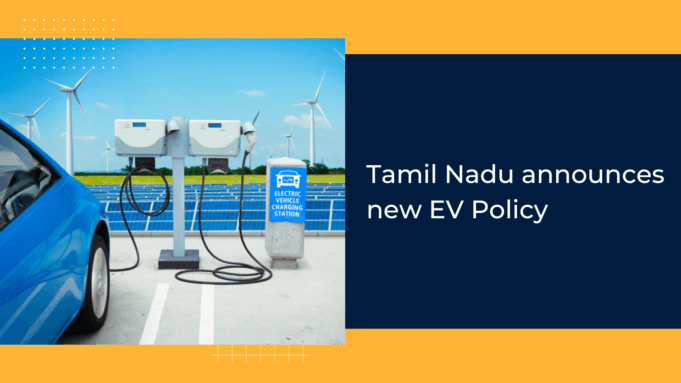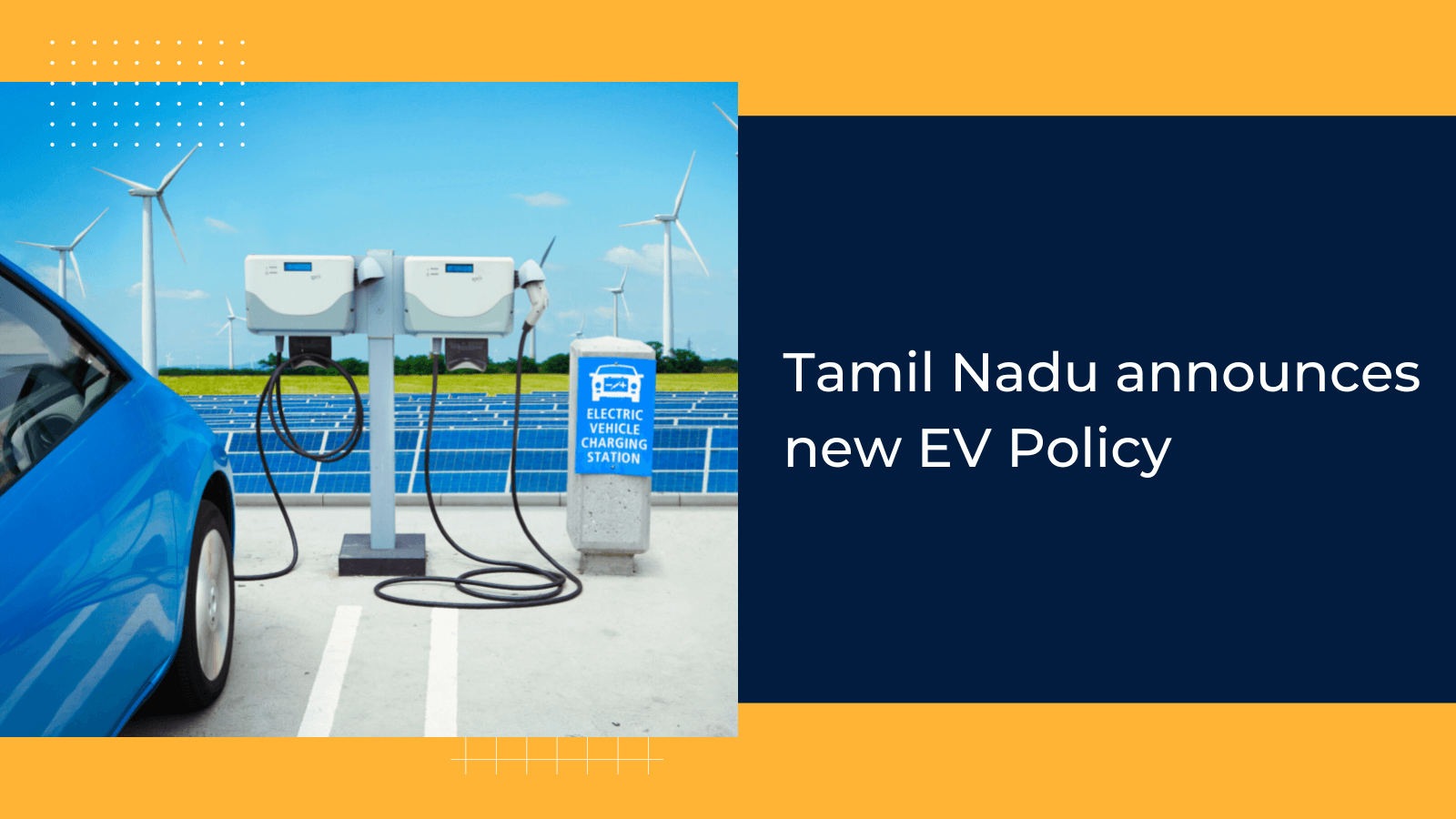Tamil Nadu government has announced its new electric vehicle (EV) Policy offering incentives for manufacturing of EVs and parts, price subsidies for commercial electric two, three and four wheelers, special sops for charging stations along with retrofitting of vehicles from petrol/diesel to electric.
Tamil Nadu Chief Minister M K Stalin aims to attract investments worth Rs 50,000 crore that would generate employment to 1.5 lakh people.
The state government will also develop EV cities with Chennai, Coimbatore, Tiruchirappalli, Madurai, Salem, and Tirunelveli as pilots and develop exclusive EV parks at its EV hubs of Krishnagiri and Manallur.
It will develop a Future Mobility Park across 300 acre in Krishnagiri. Moreover, the parks will be close to existing auto hubs. It be backed by government promoted Logistics Parks and Free Trade Warehousing Zones as well as plug-and-play manufacturing facilities.
The policy offers an EV Special Manufacturing Package for projects over Rs 50 crore investment and 50 direct jobs.
The package also includes incentives such as 100 percent reimbursement of gross SGST on EVs made and sold in the state for 15 years, subsidy of two percent of project turnover and capital subsidy of 15 percent on manufacturing of EV, EV components, charging infrastructure and a capital subsidy of 20 percent in EV battery manufacturing.
The state government will electrify 30 percent of state transport undertaking-operated buses by 2030 and also develop bus charging infrastructure through budgetary allocations.
The state government will offer incentives for commercial vehicles with e-cycles getting 20 percent of cost upto 5,000, e-two wheelers 10,000/kWh with a maximum limit of 30,000, e-three wheelers and light goods carriers 10,000/kWh with an upper limit of 40,000, e-four wheelers 10,000/kWh with upper limit of 1.5 lakh and e-buses 20,000 per kWh with upper limit of 10 lakh.
The incentives will be available to number of vehicles — 300 buses, 3,000 electric four wheelers, 15,000 units of e-three wheelers, 6,000 units each of e-two wheelers and e-cycles.
The new Policy also offers incentives for retrofitting of commercial e-two and three wheelers with 10,000/kWh with a cutoff of 15000 for e-two wheelers and 20,000 for e-three wheelers. The benefit will be available for 30,000 two wheelers and 15,000 three wheelers.
Apart from this, the state government will prioritise setting up charging stations on national and state highways at 25 km intervals on both sides. The Policy also offers energy tariff incentives for public charging stations. This includes reduction of existing charges by 75 percent for the first two years and thereafter by 50 percent for the subsequent two years.












